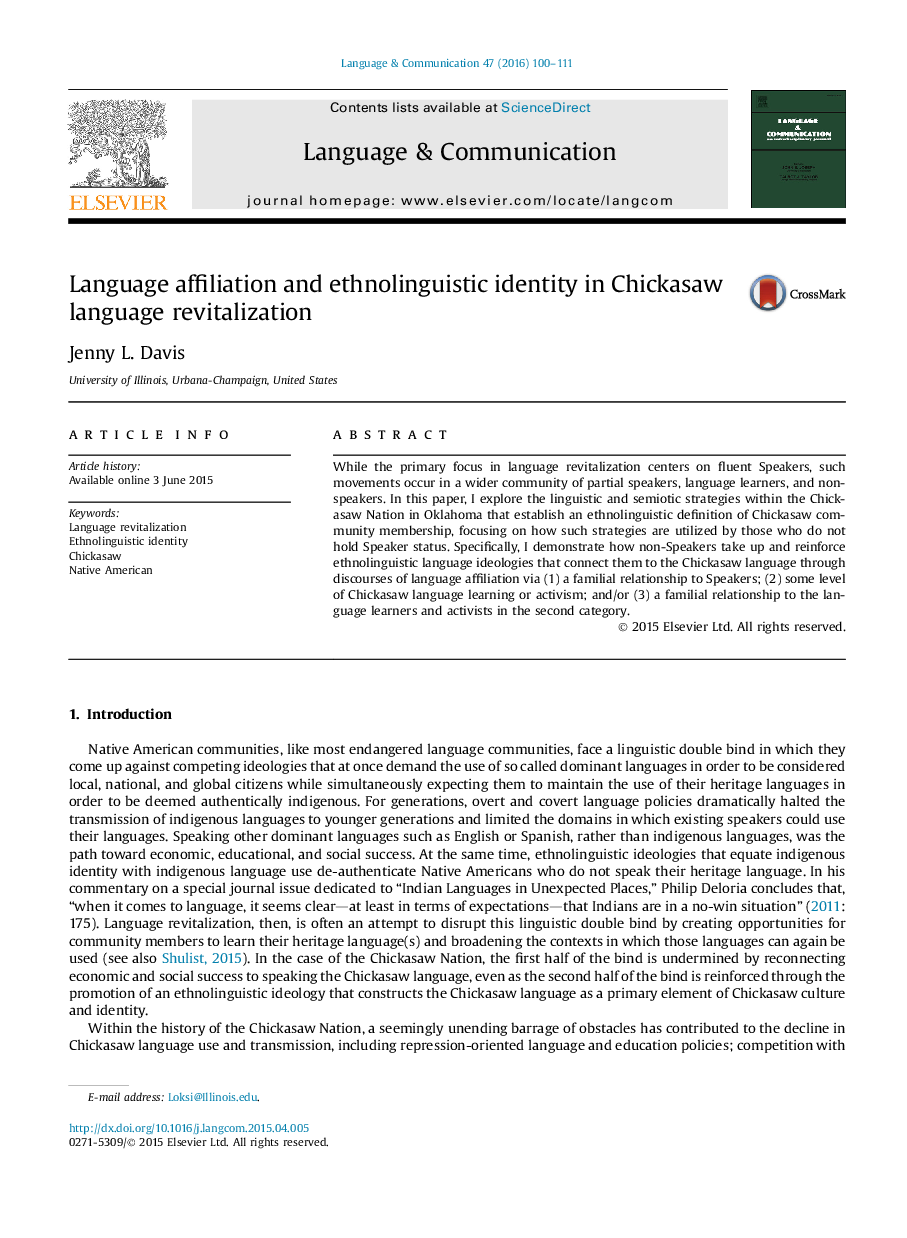| Article ID | Journal | Published Year | Pages | File Type |
|---|---|---|---|---|
| 935156 | Language & Communication | 2016 | 12 Pages |
•I examine the effects of language revitalization on broader community identity dynamics.•I demonstrate that an ethnolinguisticly defined identity is available even to those who do not speak the community specific language(s).•Fluent speakers are not the only people who have personal stakes in heritage languages being viewed as central to tribal or community identity.
While the primary focus in language revitalization centers on fluent Speakers, such movements occur in a wider community of partial speakers, language learners, and non-speakers. In this paper, I explore the linguistic and semiotic strategies within the Chickasaw Nation in Oklahoma that establish an ethnolinguistic definition of Chickasaw community membership, focusing on how such strategies are utilized by those who do not hold Speaker status. Specifically, I demonstrate how non-Speakers take up and reinforce ethnolinguistic language ideologies that connect them to the Chickasaw language through discourses of language affiliation via (1) a familial relationship to Speakers; (2) some level of Chickasaw language learning or activism; and/or (3) a familial relationship to the language learners and activists in the second category.
